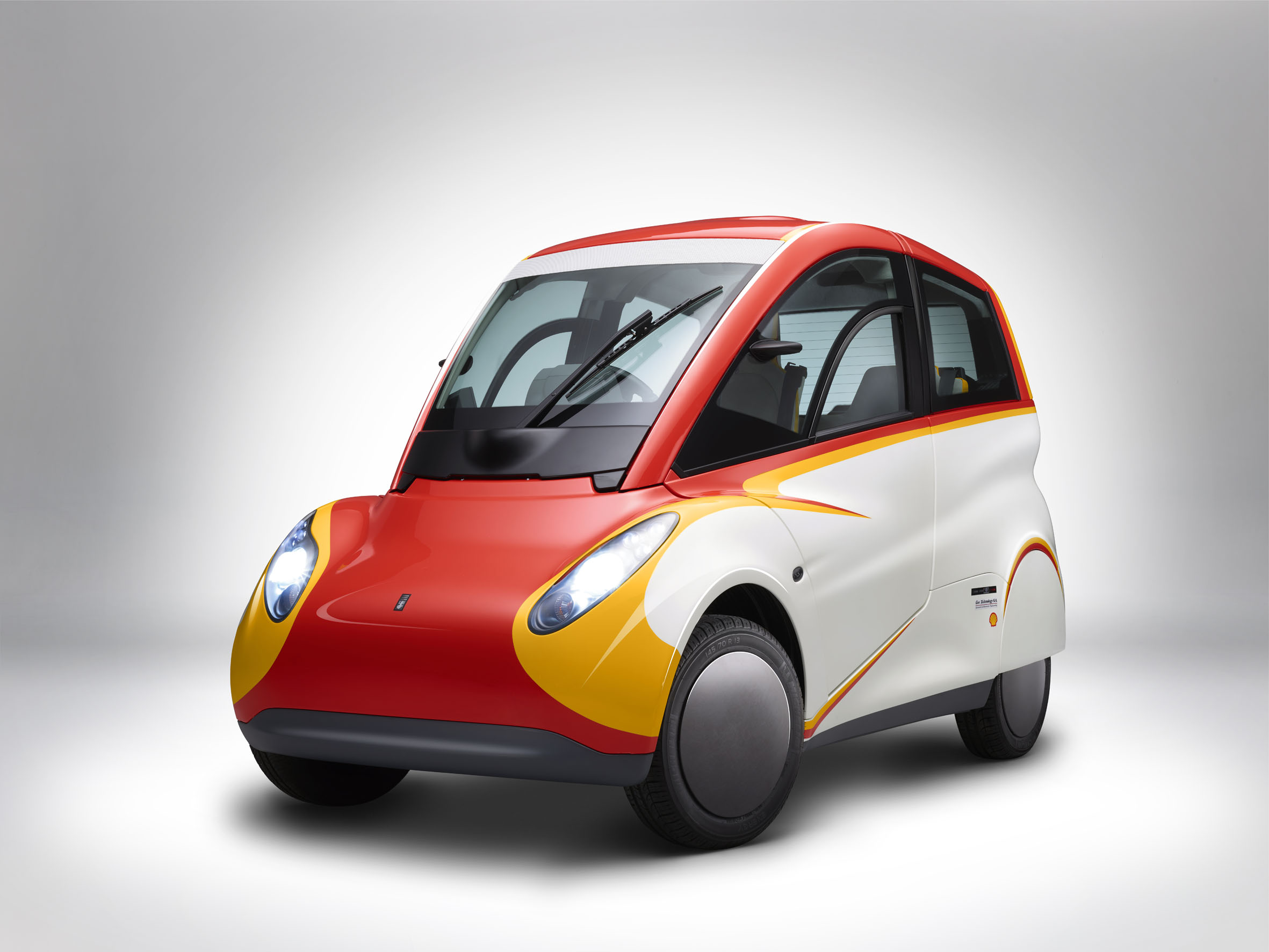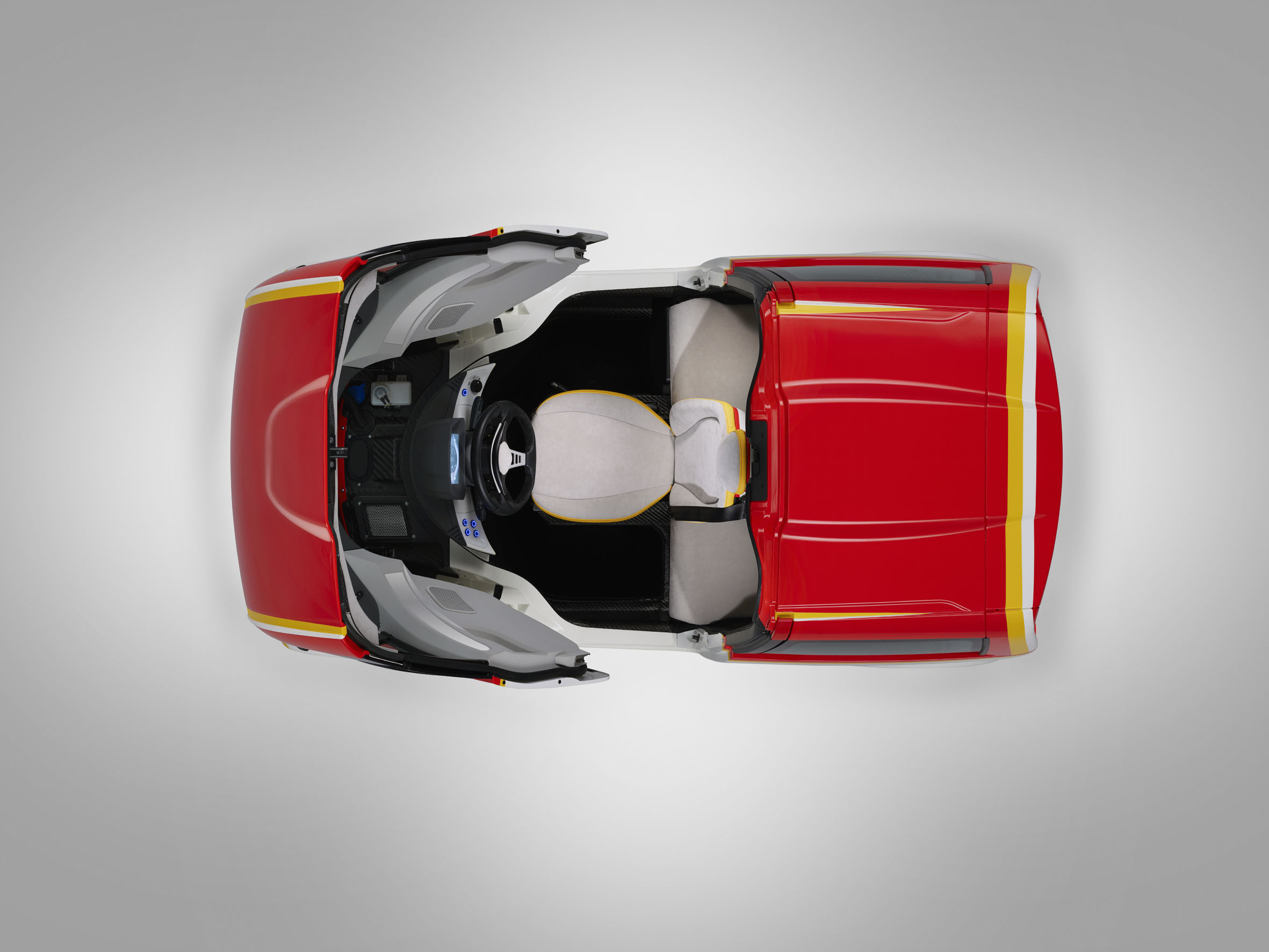






Shell has revealed a concept city car based on the Gordon Murray Design T.25.
Describing the new car as a total rethink of the T.25 car first seen in 2010, the three seater is an example of energy efficiency improvements that can be achieved by using ‘cutting edge’ technology available via a process of co-engineering - where vehicle body, engine design and lubricants are all created together. Shell says if it were ever to go into production, the concept ‘could deliver material reductions in energy use in the road transport sector’.
Built around Gordon Murray Design’s patented iStream platform, the Shell car combines lightweight technology – the car weighs 550kg – with carefully chosen materials which have a low energy and CO2 footprint. Gordon Murray’s experiences in Formula One racing have been used to develop the car, particularly its crashworthiness and lightness. A number of the car’s components were created using 3D printing to accelerate the construction of this prototype vehicle. The car also uses recycled carbon fibre for its body that can be assembled for a quarter of the price of a conventional steel car and almost the entire car can be recycled at the end of its life.
From a styling perspective, the concept offers a new take on the ‘tall and narrow’ look, and ‘dials up the fun factor’, says Shell, with its sporty central driving position and two passenger seats behind. The design produces an novel seating arrangement allowing three people to be carried despite the car’s small exterior dimensions, and the car has a turning circle of less than a London taxi, making it ideal for urban driving.
Independent testing and a ‘rigorous life-cycle’ study shows that Shell’s Concept Car would deliver a 34% reduction in primary energy use over its entire lifecycle when compared to a typical city car available in the UK. Using around half the energy required to build and run than a typical small family car available in the UK and 69% less than that of a typical SUVs, the concept is the result of a co-engineering collaboration between world leading vehicle, engine and lubricant designers, with each of the three elements of the vehicle tailored to work optimally with each other.
Focusing on energy reduction through material selection, aggressive downsizing and streamlining the car also increases efficiency of energy delivery through an ‘innovative’ engine design and lubricant formulation to minimise the impact in terms of overall energy lifecycle use.
The car’s petrol consumption has been measured using a range of vehicle testing protocols covering both steady state and urban driving styles. Sample test results include a steady state consumption of 107 miles per gallon at 45mph and an improvement of 4.67g CO2/km on the New European Driving Cycle (NEDC) from the use of bespoke lubricants, equivalent to a 5% improvement in fuel efficiency compared to standard lubricants available in the UK, according to Shell.
The concept was independently tested at a UK certified automotive testing facility alongside a range of other cars under comparable conditions to measure fuel economy and CO2 emissions. In the formal NEDC test it produced lower CO2 emissions than both a typical petrol-powered city car (28%) and a hybrid car (32%).
Shell’s Lubricants technology team created bespoke engine oil specially ‘designing’ the motor oil to complement and enhance the overall efficiency of the vehicle, principally by minimising friction. The oil giant claims that on the cold portion of the NEDC, these fluids reduced CO2 emissions by 7.1% and on the combined cycle by 5.0%, compared to standard lubricants, ‘highlighting the value of co-designing engine and fluids’.
See video of the Shell concept below:
